
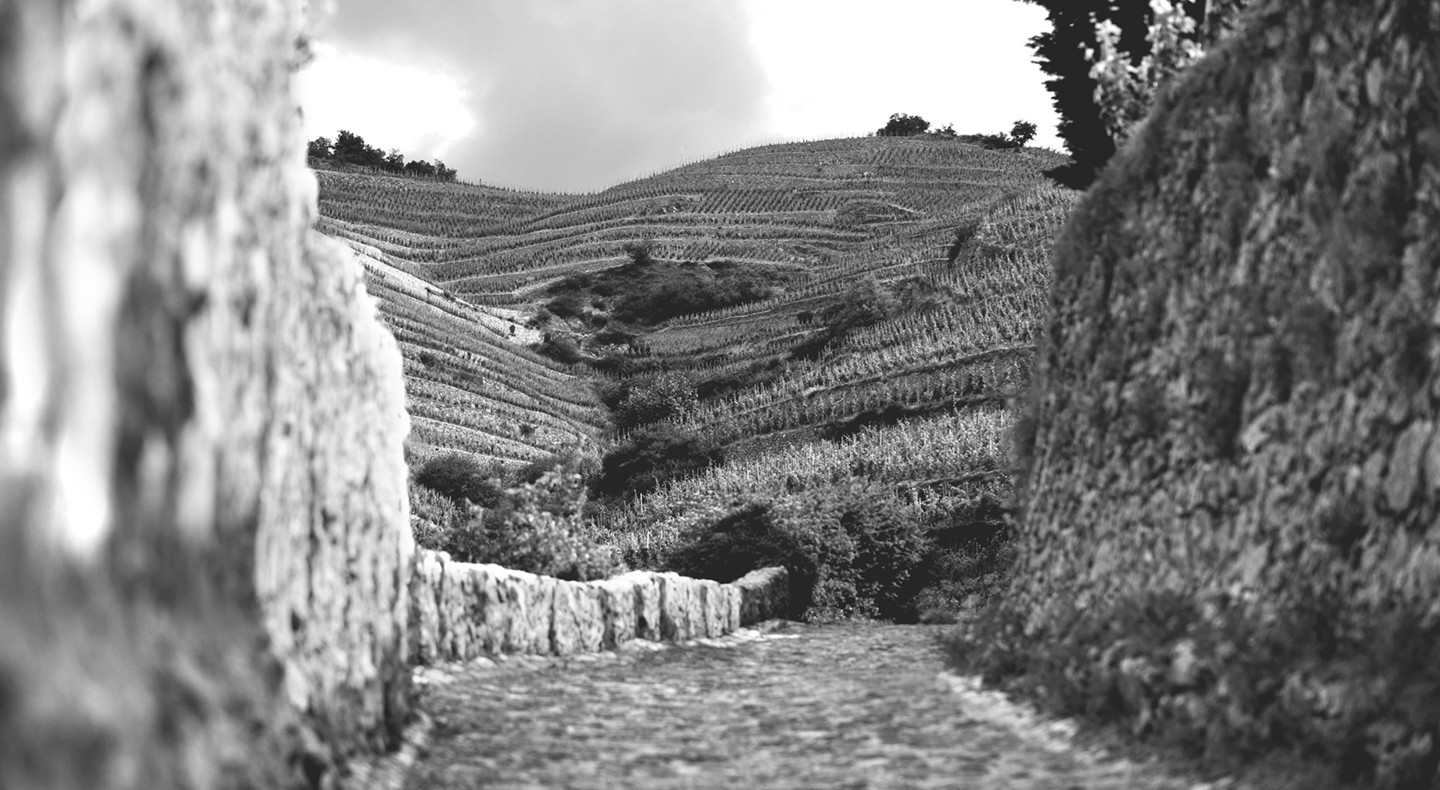

Syrah gives the wines density and deep length; its tightly woven tannins, silky grain and graphite accents reflect its granite soil. Its fleshy, sensual texture and inky, black fruit aromas are the best expression of the alluvial terraces.
The blend of these different expressions of Syrah contributes to the incomparable taste of Hermitage La Chapelle.
These Syrah vines, with roots that delve into the parcels of Bessards and Méal for over a hundred years, are in perfect harmony with their terroir.
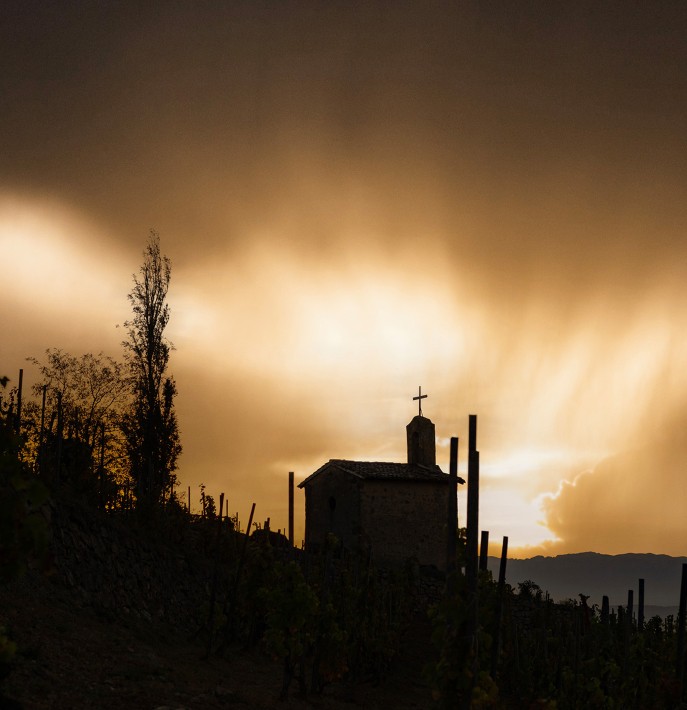
This grape variety, native to the Rhône Valley, was first mentioned in 1780.
It thrives in the poor clay-limestone soils found in Hermitage.
Louis Jaboulet, convinced that its acidity was beneficial to the balance and longevity of his white wines, always maintained a significant proportion of Roussanne in the Hermitage vineyard.
A fantastic heritage!
Iconic of the Rhône Valley, this grape variety has been cultivated there for over 2000 years. Our centenary vines thrive particularly well on the parcels of Maison Blanche and Murets Plateaux, where loess soils moderate water stress.
It imparts body and a touch of bitterness to the Chevalier de Sterimberg wine in the finish. The national conservatory of Marsanne is located on our Saint-Péray parcels.
Marsanne is also the chosen grape variety for crafting our Vin de Paille of Hermitage.
The vine, this tamed vine. We tend to forget, but the vine is wild. Beneath its appearance of an elegant bonsai, lies a vine that used to climb in the canopy to heal the edges of alluvial forests. Its strength, its wild instinct, have been tamed to yield precious clusters that will make the heart of our wines beat.
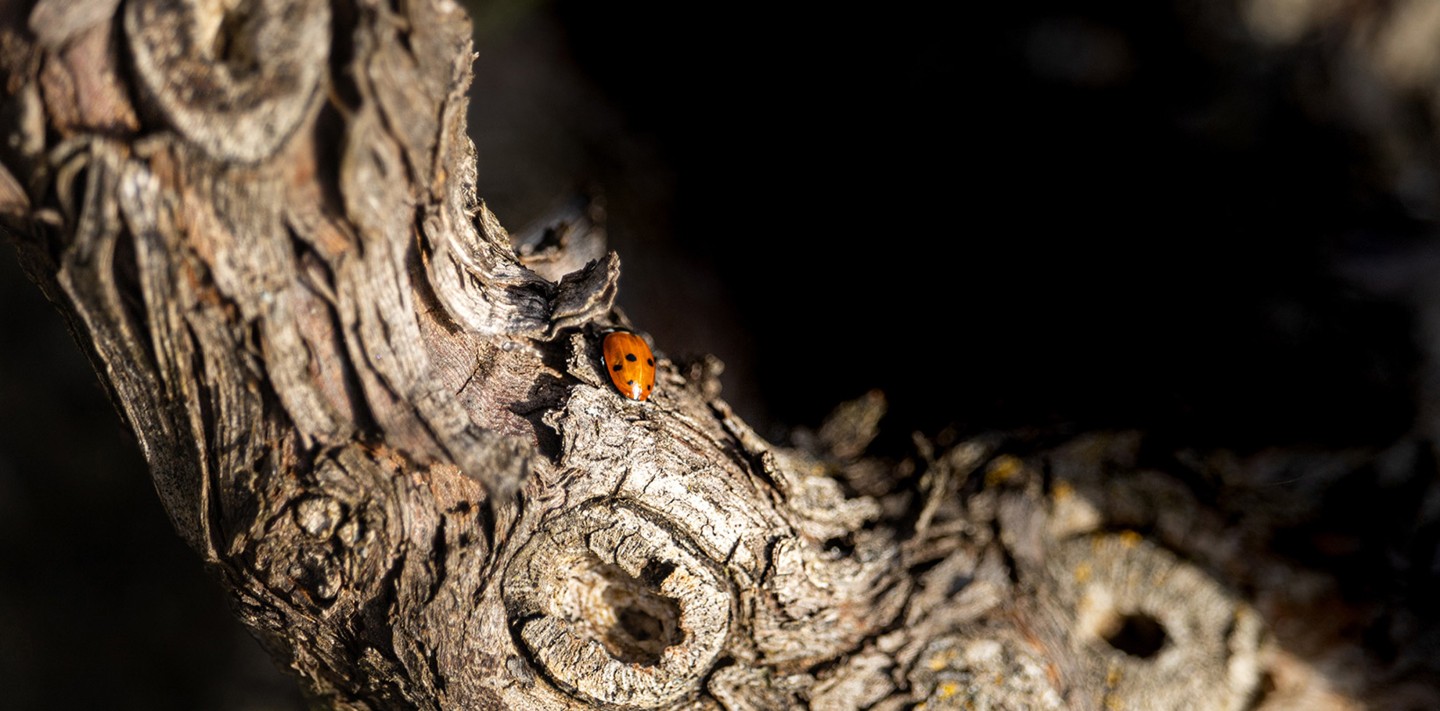
2006
REASONED AGRICULTURE AND THE BEGINNING OF THE TRANSITION TO ORGANIC FARMING.
2012
ISO 9001 AND 14001 CERTIFICATIONS.
2016
FIRST CERTIFIED ORGANIC VINTAGE AND TRANSITION TO BIODYNAMICS.
2018
HERMITAGE 100% CULTIVATED ACCORDING TO THE PRINCIPLES OF BIODYNAMICS.
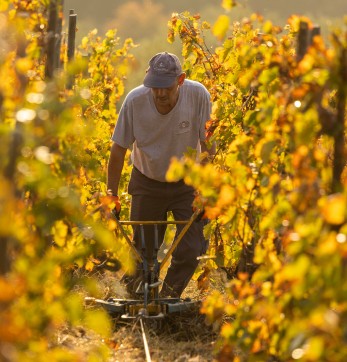
To achieve this perfect harmony, a regenerative approach that involves a deep understanding of the nature of the vine and its connection to its overall environment has been implemented.
Embracing a resilient approach is an obvious priority in order to preserve this unique heritage that is the terroir of Domaine de La Chapelle Hermitage. Preservation does not mean stagnation; we view viticulture as a constant pursuit without limiting ourselves to a single approach.
Numerous trials conducted on the soils, vine, and wine allow us to observe, among other things, an improvement in soil structure and increased tolerance to water stress.
The wines exhibit more freshness, purity, and brightness, with vibrant aromas.
In this virtuous alchemy between the mineral, the vegetal, and the animal, the great wines of terroir are born, embodying soul and depth.
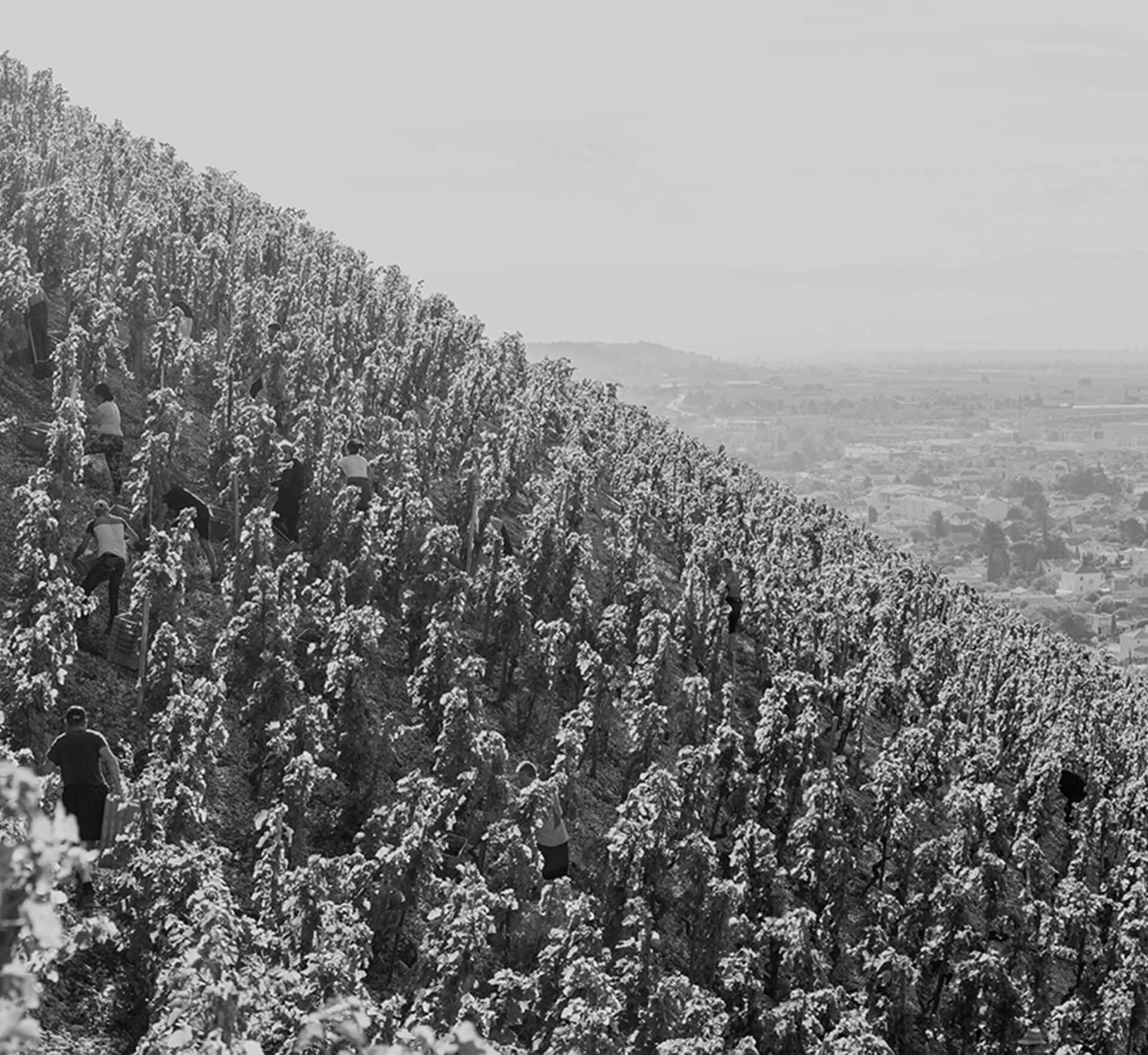
To achieve this perfect harmony, a regenerative approach that involves a deep understanding of the nature of the vine and its connection to its overall environment has been implemented.
Embracing a resilient approach is an obvious priority in order to preserve this unique heritage that is the terroir of Domaine de La Chapelle Hermitage. Preservation does not mean stagnation; we view viticulture as a constant pursuit without limiting ourselves to a single approach.
Numerous trials conducted on the soils, vine, and wine allow us to observe, among other things, an improvement in soil structure and increased tolerance to water stress.


2006
REASONED AGRICULTURE AND THE BEGINNING OF THE TRANSITION TO ORGANIC FARMING.
2012
ISO 9001 AND 14001 CERTIFICATIONS.
2016
FIRST CERTIFIED ORGANIC VINTAGE AND TRANSITION TO BIODYNAMICS.
2018
HERMITAGE 100% CULTIVATED ACCORDING TO THE PRINCIPLES OF BIODYNAMICS.
The wines exhibit more freshness, purity, and brightness, with vibrant aromas.
In this virtuous alchemy between the mineral, the vegetal, and the animal, the great wines of terroir are born, embodying soul and depth.
Caroline Frey, who has been entrusted with these precious stone slopes for nearly two decades, explains.

CAROLINE FREY
OWNER-WINEMAKER